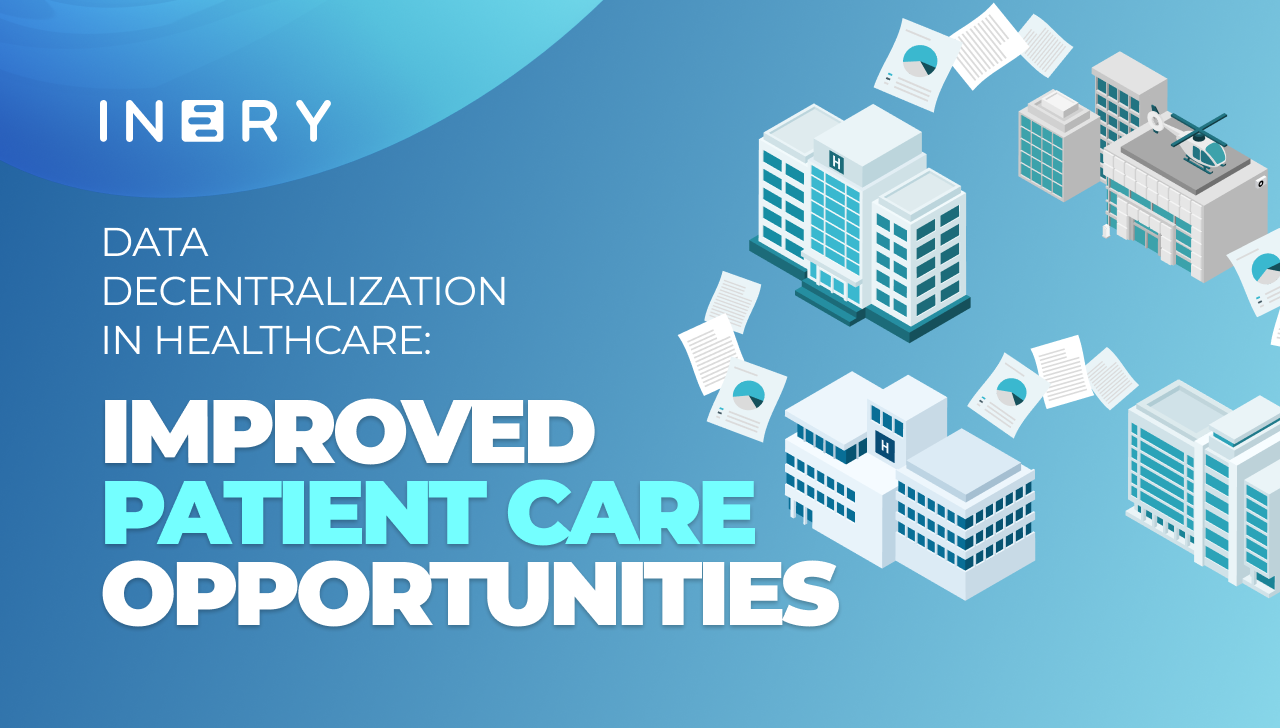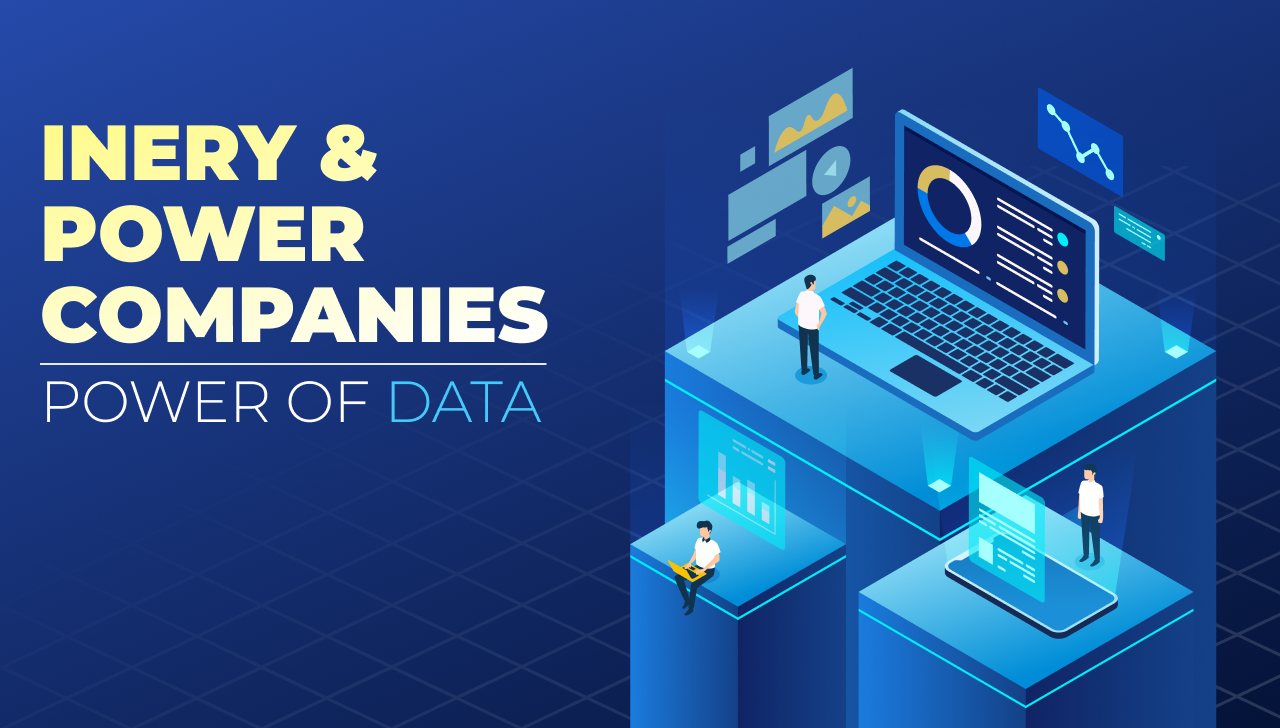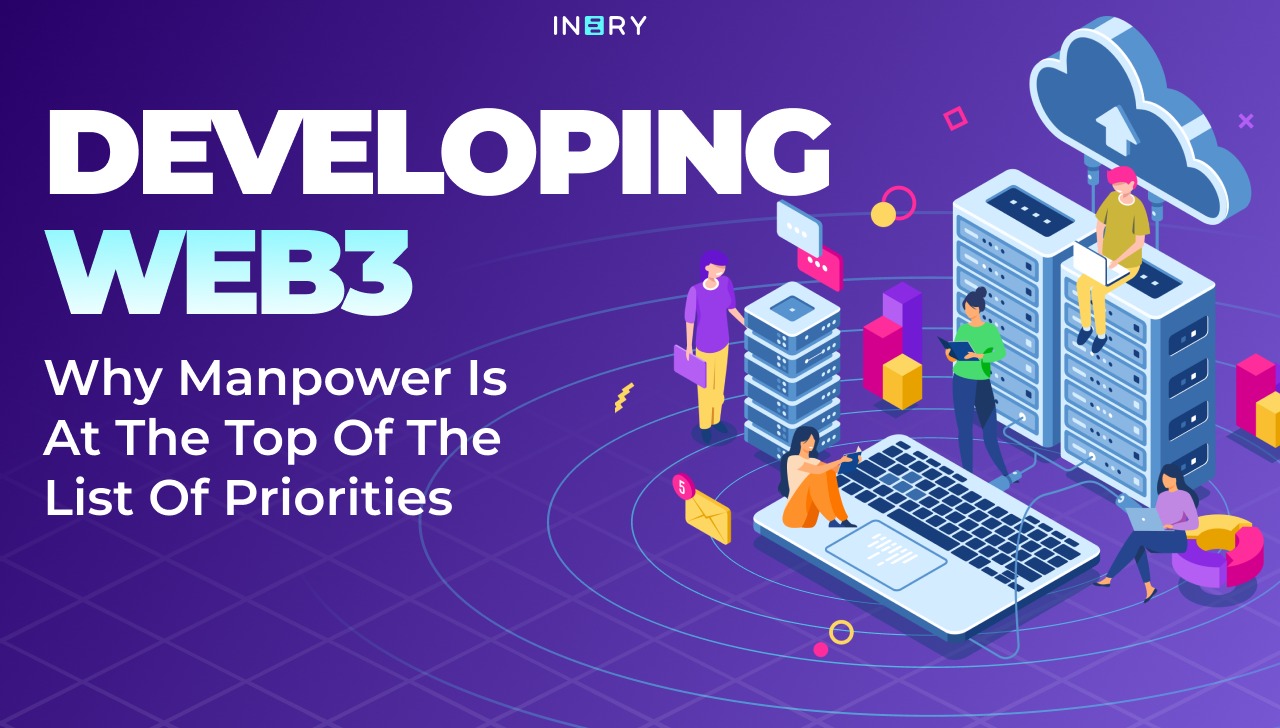TL;DR
- Barriers to integrating with existing infrastructure, lack of regulation, and poor awareness are some challenges for adoption.
- Decentralized solutions in healthcare help secure access to patient data, improve the drug supply chain, and faciliate data interoperability.
- Inery offers purpose-built decentralized data solutions for the healthcare sector to overcomes the challenges.
The healthcare industry was thrown into the spotlight when the pandemic broke out. With a growing number of sick and infected patients, the core of the COVID-19 management necessitated digital innovation to deliver optimal and timely service and treatment.
However, the healthcare domain was caught off guard by the issues that the pandemic accentuated. Left struggling, stakeholders looked for a solution that could put an end to a host of challenges that have long plagued the system.
Data decentralization emerged as the knight in shining armor and is a strong contender to help reform the sector and help stakeholders deliver efficient healthcare services.
But what exactly does data decentralization promise in terms of patient care and what challenges does it entail in terms of mass adoption.
The Current State Of Healthcare Data Management
The status quo of healthcare data management is indeed abysmal. Data transparency, traceability, trust, privacy, and security are major concerns for present-day healthcare data management systems. Primarily, since the current trend of preserving healthcare data in centralized systems, the risks of a single point of failure still loom over the industry.
Typically, a patient’s medical data is dispersed throughout several hospitals, healthcare facilities, and insurance companies. This can lead to repeating medical tests and delayed diagnosis, increasing the time for delivering treatment and costs for the patient.
Moreover, the current healthcare system’s drug supply chain falls short of legitimacy and traceability. However, ensuring the legitimacy, origin, and supply chain of medical devices and pharmaceutical products is easier said than done.
How Decentralized Data Will Improve Patient Care Opportunities
Access To Secure Patient Records
Decentralized helps keep all of a patient’s medical data on the blockchain thus ensuring that records are constantly up to date, traceable, and tamperproof. This helps healthcare professionals to provide patients with effective, timely, and appropriate therapy. Using blockchain technology, medical suppliers might have a complete patient’s medical history with immutable, transparent, traceable, and secure data.
Accurate Drug Supply Chain
Blockchain can help stakeholders all along the drug supply chain check the validity of drugs, expiration dates, and other critical information thus allowing for effective supply chain management. This is crucial to improving patient outcomes.
Data Interoperability
Data decentralization can allow for real-time data to be exchanged between institutions, laboratories, researchers, and clinics. Sharing drug success rates, IoT system input, patient lab reports, and prescription status will have massive benefits for delivering timely patient care.
Challenges To Implementing Decentralized Data in Healthcare
Typically, healthcare data is voluminous in nature, consisting of everything from wearable medical IoT devices to patient medical records. Blockchain architecture suffers from the issue of scalability and high network equipment energy usage. Costs of operations, access, and maintenance can shoot up in these scenarios.
For mass adoption in private clinics, healthcare centers, and other stakeholders, this issue remains one of the crucial points to be addressed in implementing blockchain-powered healthcare data management.
Moreover, given the fact that data decentralization by blockchain is a relatively new concept, it remains unregulated to date. Issues of data security and privacy in decentralized storage need to be thoroughly evaluated and critically studied to find a middle ground with regulators.
How Inery Overcomes These Challenges For The Health Sector
Inery is built to handle massive data effectively without downtime. Our blockchain runs on a Self-Delegated Proof of Stake consensus method and hence, has high throughput. Simply put, this acts as a standalone network self-load-balancing tool and this allows for network scalability and high speed.
Inery is committed to ensuring data security. It employs state-of-the-art security to patient records while ensuring that they are constantly up to date, traceable, and tamperproof. This is done by adding a layer of protection and encryption to data through cryptographic methods.
This helps healthcare professionals access tamper-proof, reliable information and helps provide patients with effective, timely, and appropriate treatment.
Closing Thoughts On The Future of Healthcare Data Management
The future of healthcare data management is looking very bright with the decentralization of patient data. This will improve patient care opportunities by giving patients more control over their own data, as well as providing researchers and doctors with easier access to important health information.
- Clinical data management will become increasingly complex as the number of stakeholders involved in patient care continues to grow.
- Decentralized systems can help improve communication among all members of the care team, from physicians to nurses to pharmacists.
- Data decentralization also has the potential to improve patient outcomes by giving providers access to real-time information about patients’ health status.
About Inery
Inery is the first-ever layer-1 blockchain offering the solution of decentralized database management with the vision to enable a new paradigm for data. Inery is designed to enable cross-chain communication of data, greater speed, and better security. It specifically addresses database management integrated with blockchain functionalities and distributed database management properties.
The Inery database management solution (IneryDB) allows a secure, low-cost, and immutable way for database management where the control of private information remains in the hands of users and enterprises. It sets the base for the web3 future to enable value creation by seamlessly connecting with other systems, applications, and layer-1 networks.
Website | Twitter | Telegram | Telegram Ann | LinkedIn | Discord | Reddit | Instagram

Inery•
2 years ago
How Does Database Indexing Work?
Learn to set up a database index and optimize your queries. Click here to read our go-to guide to indexing databases. ...READ MORE
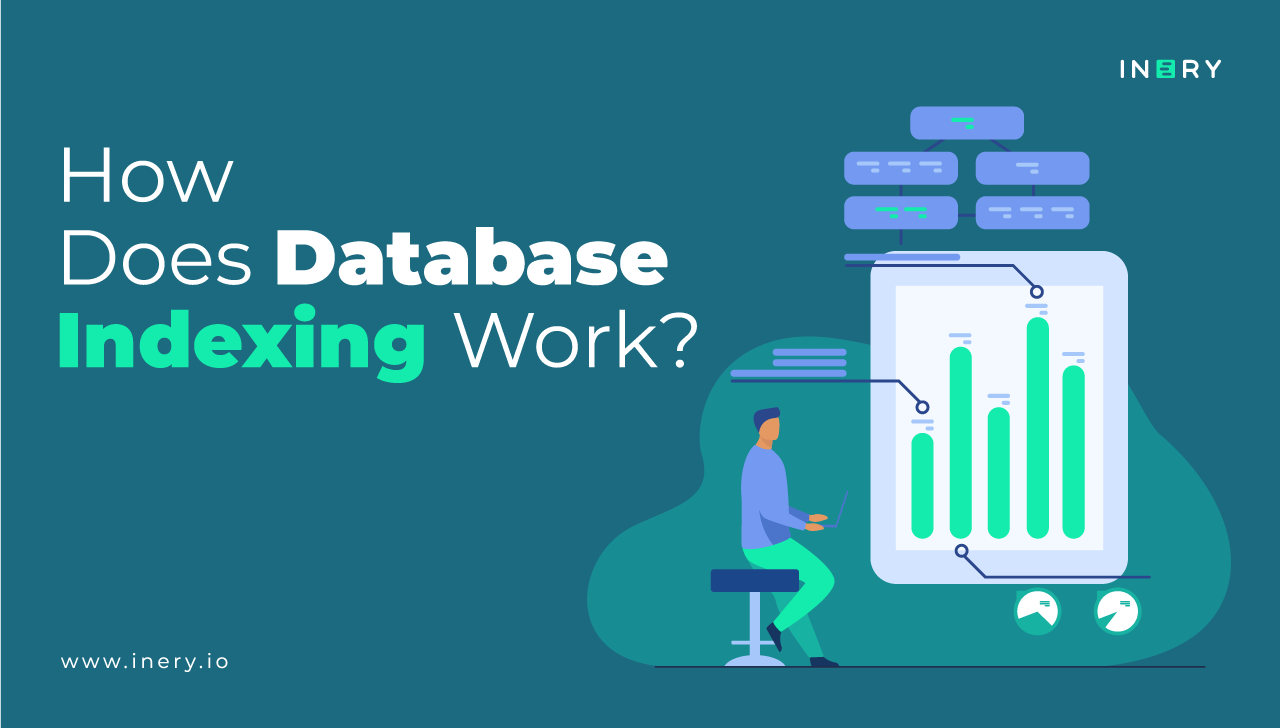
Share

Inery•
2 years ago
The Priceless You: Uncovering the Untold Value of Personal Data
Uncover the hidden value of your personal data in the digital realm, where tech giants thrive on your information. ...READ MORE
-1700735858.png)
Share

Inery•
1 year ago
Inery's Role in Fighting Fake News with Verified Information
Uncover Inery's role in combating fake news by using blockchain for verified, tamper-proof information, ensuring reliable news and restoring public trust in media sources. ...READ MORE
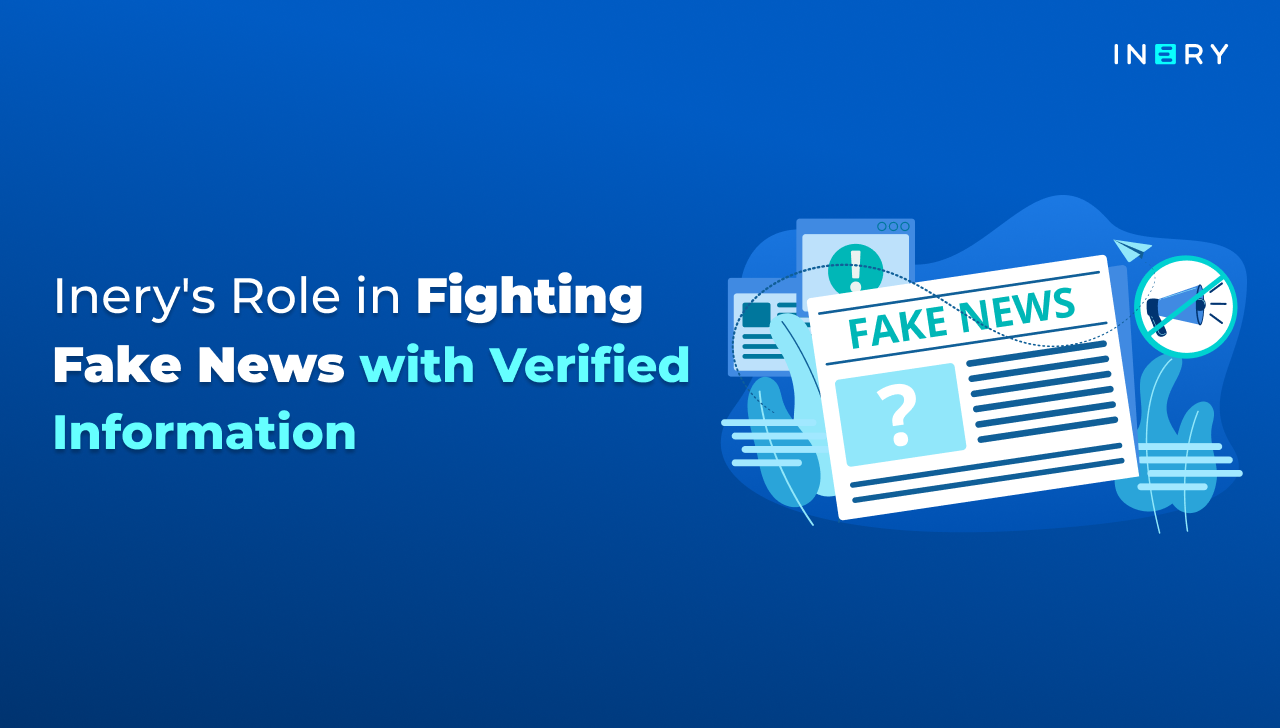
Share

Inery•
2 months ago
The Hidden Cost of Sharding Mistakes
Sharding can scale systems, but a wrong shard key or poor resharding plan can cause months of engineering work, higher infra costs, and downtime. Learn how to avoid it. ...READ MORE

Share
Most popular today

